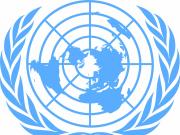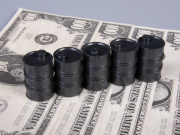
Waste not, want not. We are all familiar with this saying, but why do we not place the importance upon it that it requires? Sure, we may heed the saying when it comes to the food on our plates, but what about in other aspects of our lives? If we don't waste what we have, we'll still have it in the future and will not lack (want) it.
Let's think of it in the literal waste sense. Ranked as the 24th worst country at recycling, Australia produces an unfathomable 21 million tonnes of landfill waste. Considering Australia's high economical ranking, its recycling output should in fact be a lot higher. According to Neptune Papers, with the correct recycling systems in place, up to 80% of the waste within Australian landfills could be recycled each year.
Neptune Papers (Pvt) Ltd has been primarily responsible for helping to recycle over 35 million kilos of paper waste and 3.5 million kilos of pre-consumer fabric within Sri Lanka, over the past 2 decades Led by Abdullah Osman Kassim, the company successfully achieved this massive feat by creating customized waste management strategies in place for a multitude of businesses.
"With China's waste export ban, Australian governments and businesses have realized that they need to take control of waste management systems in-house rather than relying on exportation," says Abdullah. "Thankfully, it is not too late."
In talks with a few key Australian companies, Neptune Papers is set to bring recycling technology and expertise into the Australian market by helping it create a circular economy. "For centuries, we have incorporated linear production models," says Abdullah. "Meaning we extract, produce, consume, and discard." The pace of such consumption is rapidly accelerating and completely unsustainable for the planet.
"A circular economy means establishing a more sustainable production and consumption model, in which raw materials are kept longer in production cycles and can be used again and again, meaning much less waste is generated," says Abdullah. By implementing a model of this type, Australia would be able to ensure that precious resources are kept within the economy for as long as possible meaning it would be possible to actually use the waste we generate as raw material within other industries.
"One man, or business', trash is literally another's a treasure," says Abdullah. "Not only would a circular economy aid in pollution and landfill waste, but it would improve Australia's financial economy."
You don't have to be an elected official or corporate leader to do your part. Each person needs to take responsibility by doing their part to help improve Australia's, and by extension, the planet's, circular economy. Waste not, by checking out how you can improve recycling within your home or workplace here.









